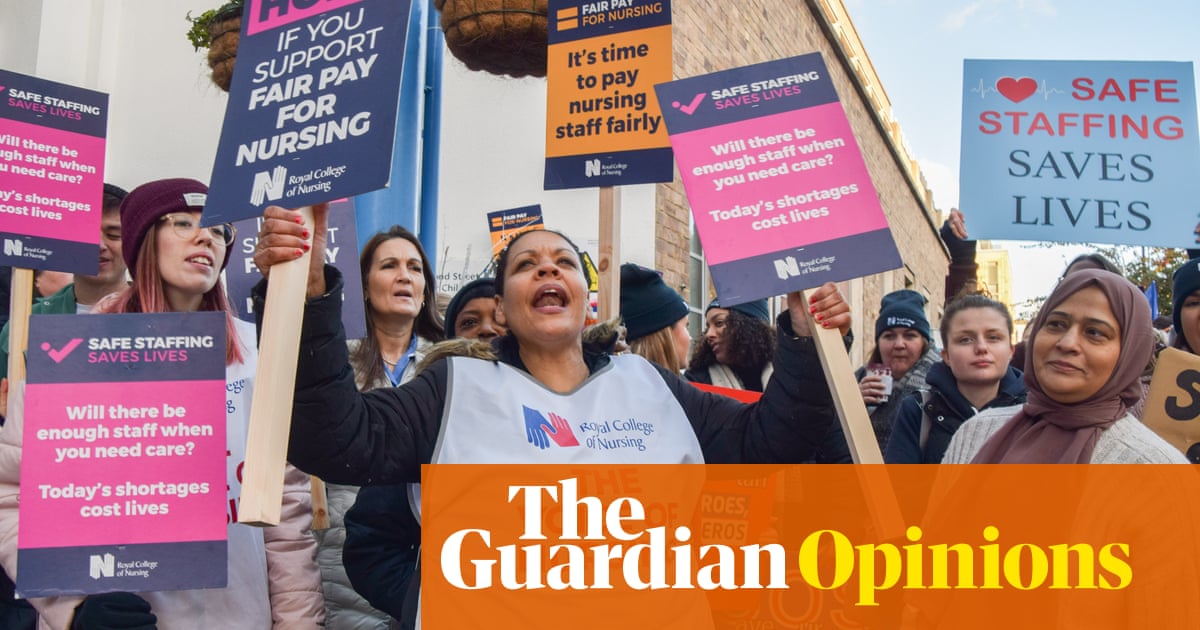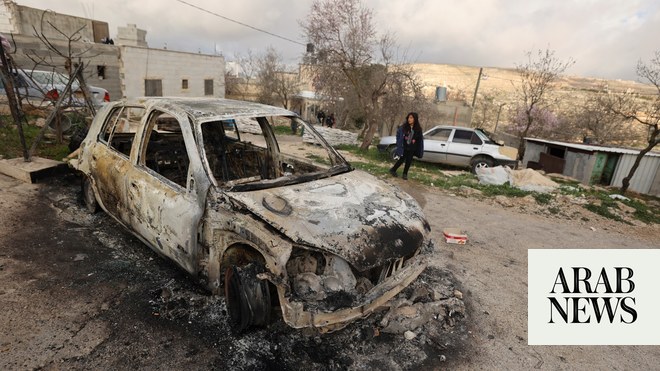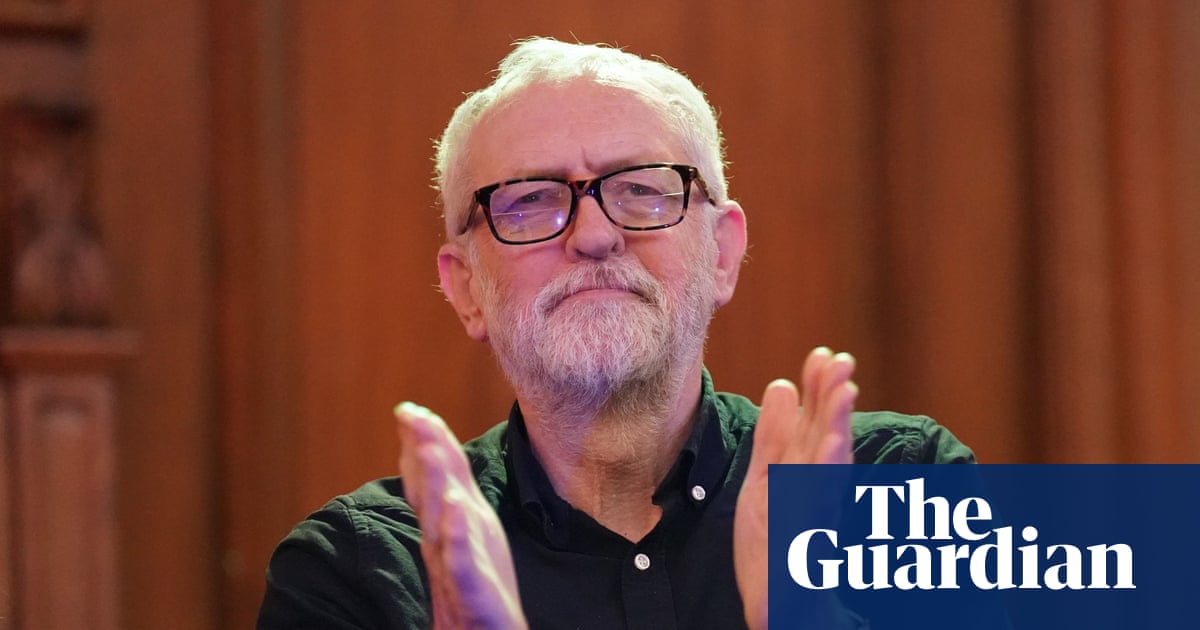
The response of Mette Frederiksen, Denmark’s centre-left prime minister, to being physically assaulted in a Copenhagen street was dignified and very human. “I’m not doing great, and I’m not really myself yet,” she admitted last week. The attack, in which she escaped serious injury, had left her feeling shocked and intimidated, she said.
Frederiksen suggested her experience was the culmination of some broadly familiar trends: proliferating social media threats, increasingly aggressive political discourse, a divisive Middle East war. “As a human being, it feels like an attack on me. But I have no doubt it was the prime minister that was hit. In this way, it becomes a kind of attack on all of us.”
This idea that elected politicians – and the democracies they represent – are everywhere endangered by rising personalised violence is backed by plenty of evidence.
With contentious elections fast approaching in France, the UK and the US, it seems only too probable that there will be more outrages and more victims, some possibly high profile. The root causes of this phenomenon include anger at and distrust of “ruling elites”, deliberate polarisation and fearmongering, anti-migrant racism, sectarian bigotry, economic distress and digital provocations by malign state actors. Yet there is no obvious pattern. Political violence, mostly random, is coming from both right and left.
Robert Fico, Slovakia’s hard-right populist prime minister, was shot several times last month and was fortunate to survive. He believes he was attacked because of his views, and blames the influence of political opponents on the left. “It’s evident he [Fico’s assailant] was only a messenger of evil and political hatred,” he said.
In Germany, the boot is on the other foot after a series of attacks by far-right thugs reminiscent of the Nazi era. In May, Matthias Ecke, a Social Democrat MEP, was brutally beaten up in Dresden. On the same evening in the city, a Green party campaigner was also assaulted.
The notorious 2019 murder of Walter Lübcke, a centrist politician, by a neo-Nazi now looks like a turning point. Attacks have doubled in Germany since then. Provisional figures show 234 physical assaults on politicians and political activists last year. “We are experiencing an escalation of anti-democratic violence,” said the interior minister, Nancy Faeser.
It would be easy to blame the divisive policies and rhetoric of Germany’s surging far-right party, the Alternative for Germany (AfD), and many do. But AfD members suffered more violent criminal attacks in 2023 than any other party, mostly from people with a leftist ideology. The Greens were the second biggest victims.
Last week’s decision by France’s president, Emmanuel Macron, to challenge the far right in a snap parliamentary election, which will take place in two rounds on 30 June and 7 July, is a big political gamble. But it may prove a personal gamble, too. Macron was attacked with eggs, tomatoes and assorted vegetables in previous campaigns. In 2021, he was slapped in the face.
The potential risks to his and other French politicians’ safety in the current climate are obvious, yet difficult to defend against. “Extreme-right violence – motivated by nationalism and authoritarianism – is on the rise in France,” warned the University of Oslo extremism expert Anders Ravik Jupskas, writing in Le Monde.
Like democratic politicians elsewhere, unpopular Macron puts his life on the line when he goes on the stump. It’s plainly dangerous, and raises basic questions about how long this style of face-to-face politics can realistically continue. It’s worth noting that authoritarian leaders such as Russia’s Vladimir Putin, while claiming to be popular, rarely expose themselves to the public in this way.
Similar concerns are growing in Britain, where memories of the unconnected murders by extremists of Labour MP Jo Cox and Conservative MP David Amess are still fresh. Last week, the Jo Cox Foundation joined in condemning two attacks on the hard-right Reform UK party leader, Nigel Farage, one with a milkshake, another with a takeaway cup.
Who knows what may be thrown next and at whom? There’s a tendency among the more feckless English to view such episodes as harmless knockabout. This attitude dates back to at least the 1970 election, when Labour prime minister Harold Wilson was repeatedly pelted with eggs at public meetings, to a disrespectful nation’s general amusement.
British politics is less innocent and more hazardous these days. Rosie Duffield, a Labour candidate, revealed last week that she spent £2,000 of her own money on bodyguards after receiving death threats. Now she has withdrawn from local hustings. Particular worries surround the safety of female politicians, such as much-pilloried Diane Abbott. Yet individual security protection is not typically provided.
In this alarming context, Tory minister Michael Gove’s fumbling attempts to define and proscribe extremism amid torrents of public vituperation over Gaza look irrelevant. A more pressing question, for example, is how well protected from non-terrorist-related, rightwing political violence is Keir Starmer, Britain’s probable next prime minister?
Debate persists over whether political violence predominantly emanates from the far right or left. In a sense, that’s academic. Of immediate concern is the fact that everywhere in the democratic world, or so it seems, conventional politics is at risk of sinking under the weight of violence – verbal, virtual, digital and physical. Defences against it appear thin to nonexistent.
Given America’s role as post-1945 democratic paradigm, the prospective resurrection this autumn of Donald Trump – a man who daily normalises violence – could make a bad problem very much worse. Trump’s weaponising of state power is uniquely corrosive of trust, tolerance and peaceful change.
Yet in truth, most governments are deeply conflicted. Like its US counterpart, the British state – in suppressing the 1984-85 miners’ strike, protests over the Iraq war and Gaza, and environmental activism – has often appeared better at inflicting political violence on ordinary people than protecting them from it.
Simon Tisdall is the Observer’s Foreign Affairs Commentator












